The Church of St Gregory The Great
Religious Place In Wooler, Northumberland
A beautiful church filled with art, history and culture in the fork of the road up to the College Valley.
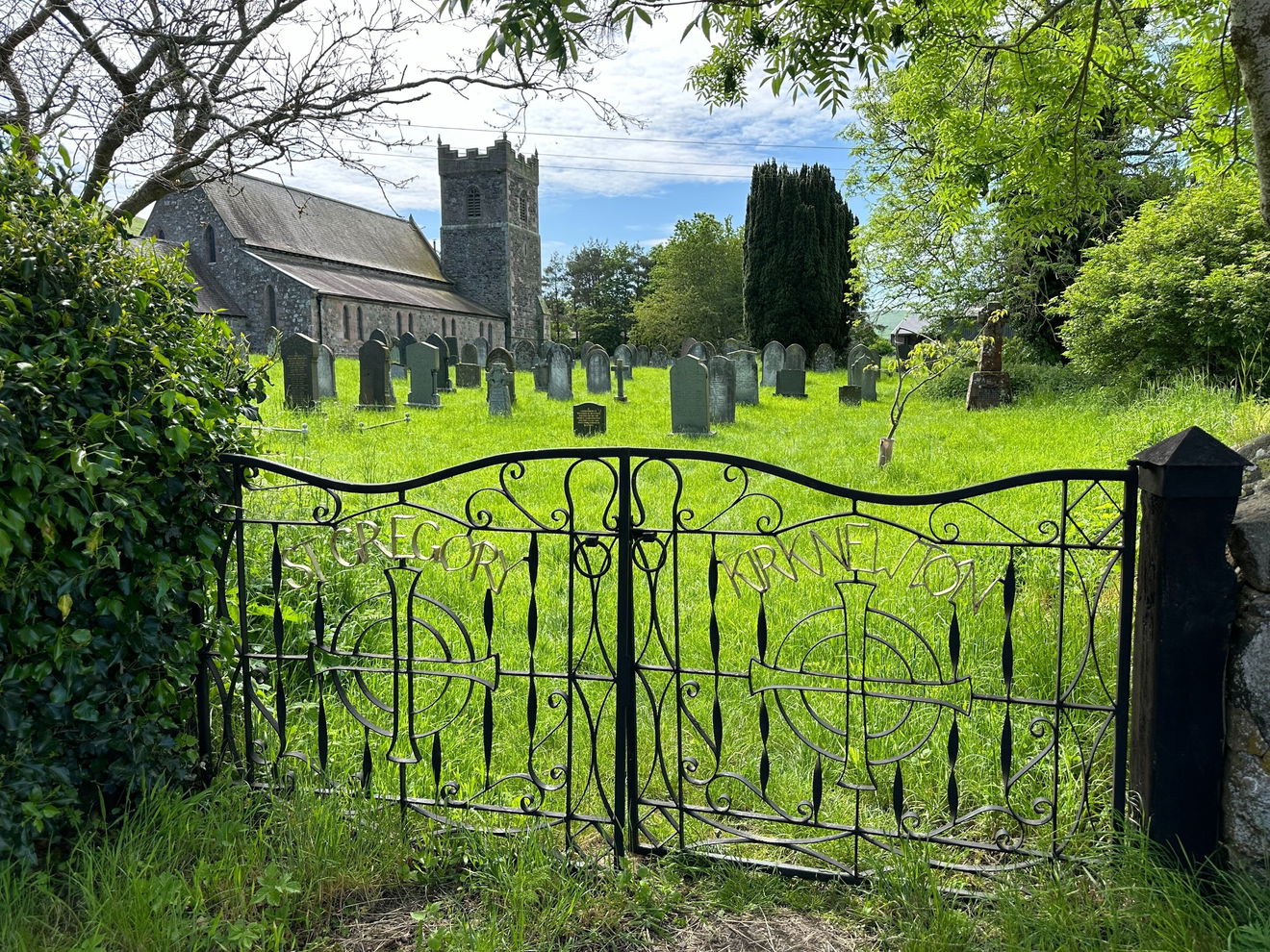
On a hot and hazy North Northumberland drive we stumbled upon the church of St Gregory The Great at Kirknewton on the edge of Lanton Hill. It's an idyllic location for a church, in the fork of the road up to the College Valley and onwards six miles to Kirkyetholm on the Scottish border.
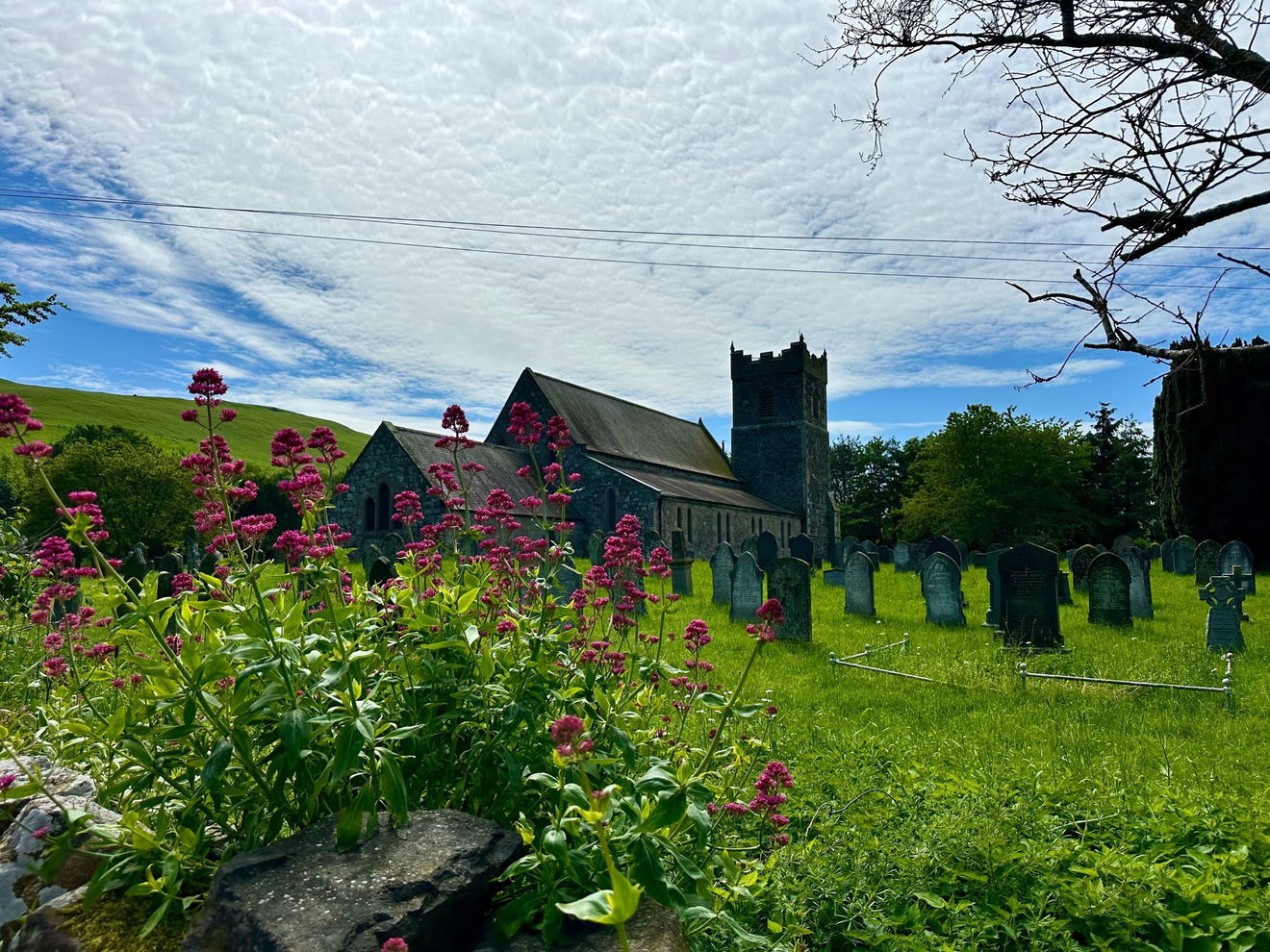
Stepping through the hand-forged gates, we were welcomed by the gurgle of the brook running through the overgrown graveyard. Little swallows swept over our heads and the red valerian piggybacking in the cracks of the church wall.
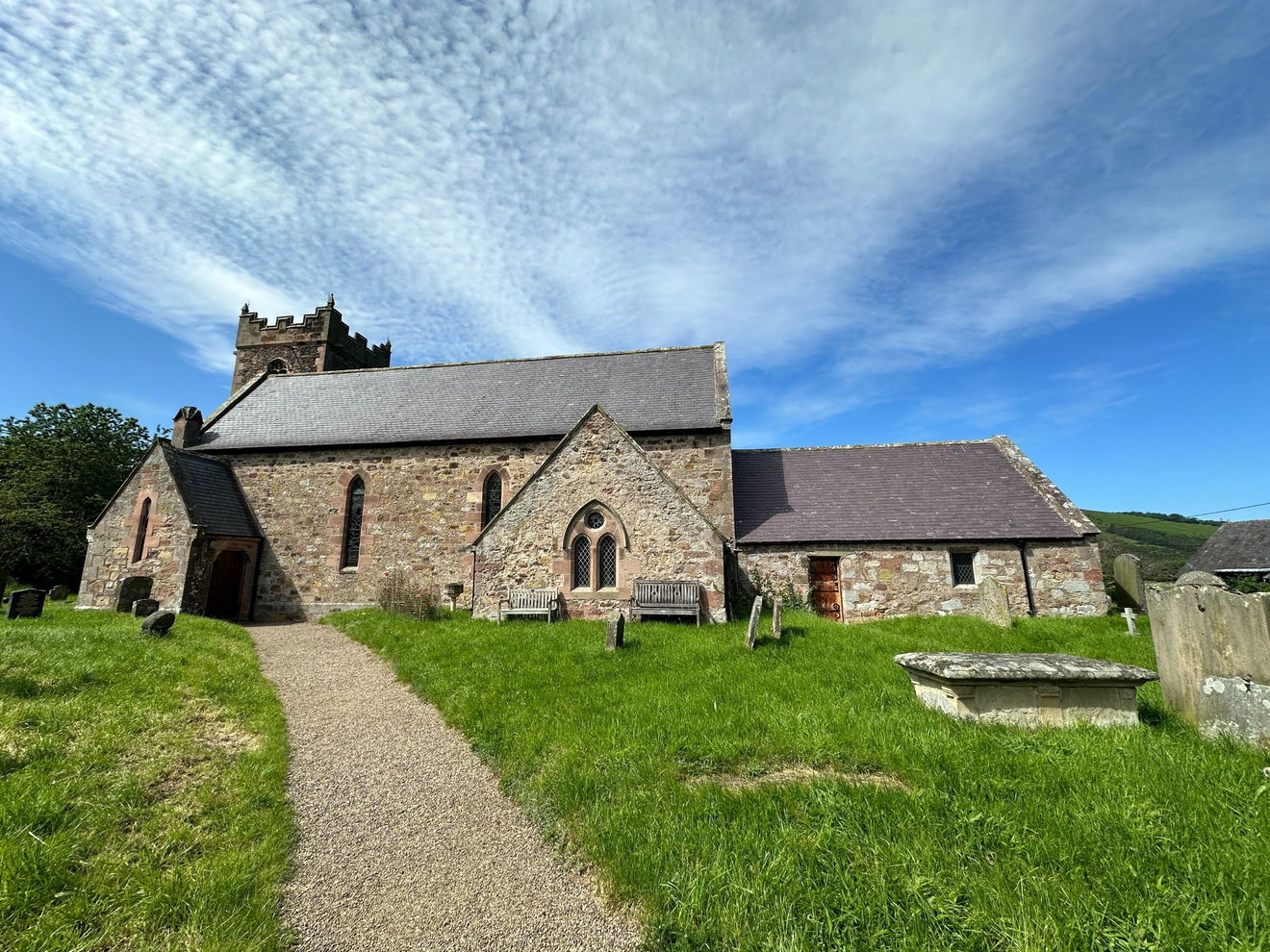
The church is spectacularly light and airy with its limewood pews and loads of interesting artefacts.
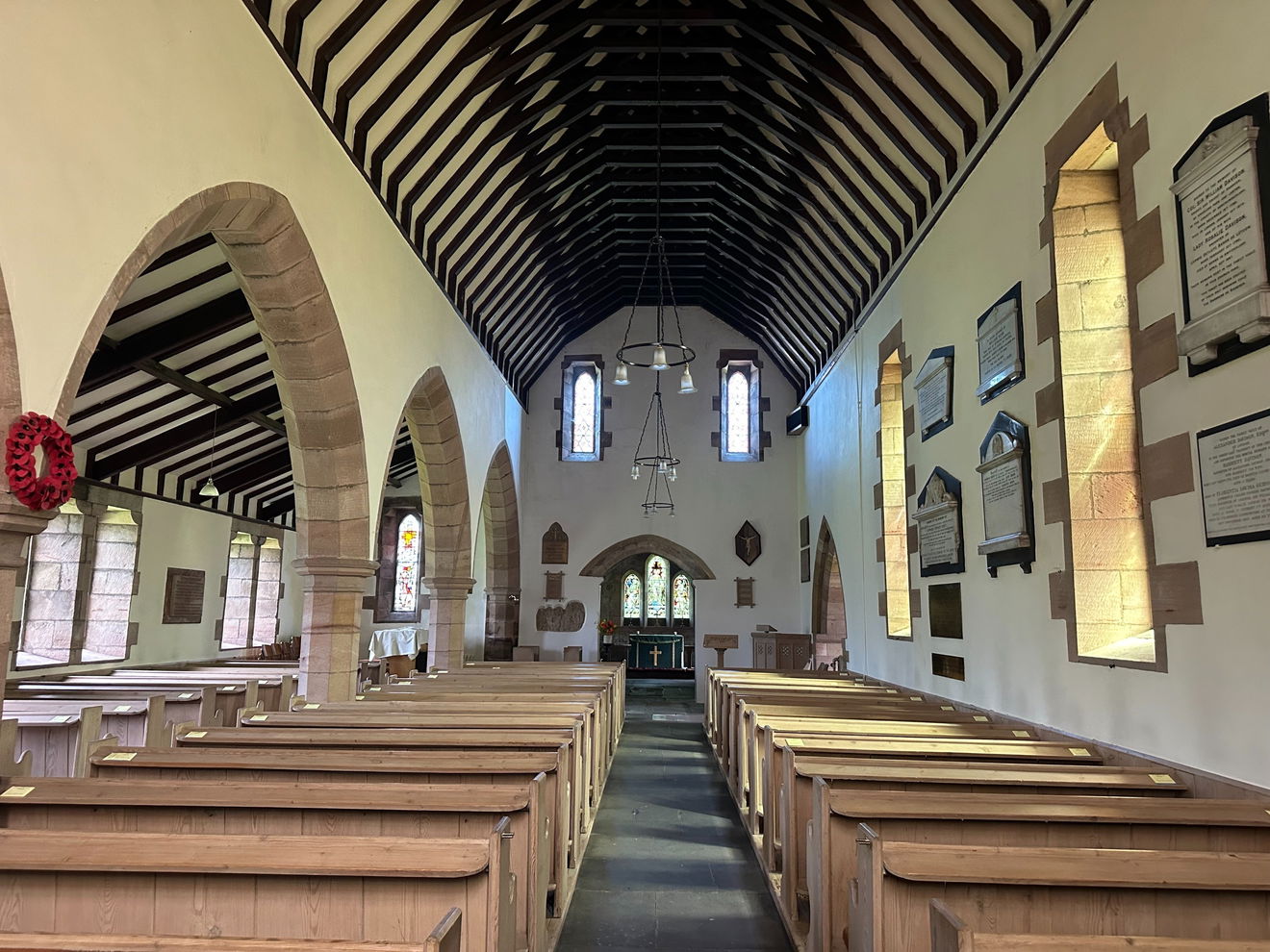
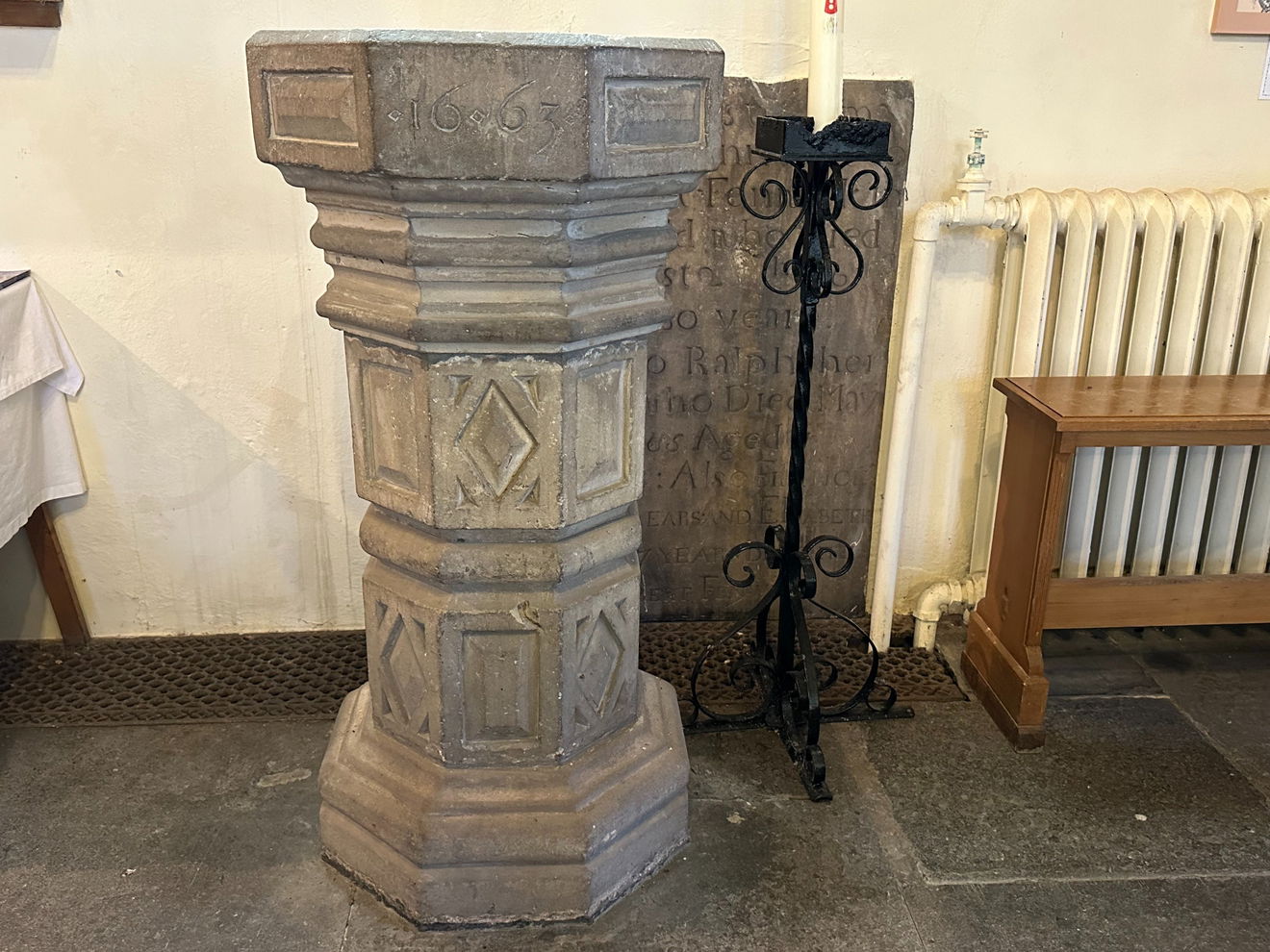
The font dates from 1663, holy moly that's a lot of wet baby heads. The church was restored in 1860 by Newcastle architect John Dobson but dates back to a religious building on the site from the 11th century.
A carved biblical story, intricately detailed in wood jumped off the wall. It's beautiful and evidently enjoyed by woodworm, as shown in the multitude of teeny nibble holes. Whichever way you moved, the cow to the left had his eyes on you! The sheepskin cloaks, the beards of the shepherds and the animal hair were so detailed and textural. I couldn't find any information on the carving anywhere, but wondered if it was perhaps part of a reredos panel in a former life.




An ornate roundel memorial window sucked in the sunshine and showed its fiery colours, commemorating the lives of two local brothers who died in WWII in Yugoslavia and Arnhem.
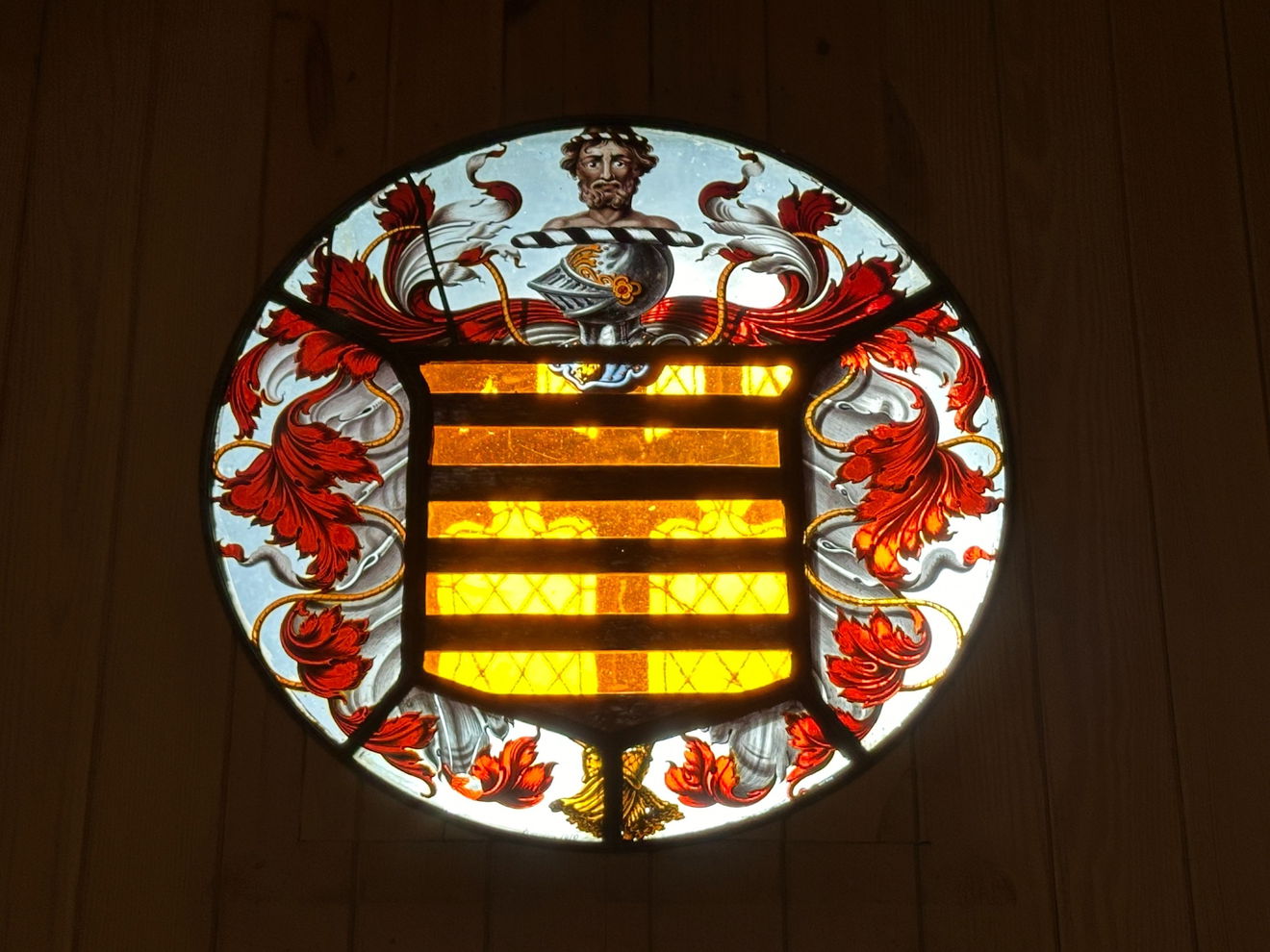
But the best bit for me was the delicately leaded window by 20th century artist Leonard Evetts who I'm enjoying learning about at the minute. I looked at it in lots of ways and tried to understand the symbolism. Stained glass windows were originally designed for people who couldn't read the words of the Bible, and so would become familiar with the saints and stories through stained glass imagery. To be honest, the religious symbolism in Evetts windows is so cryptic that I'm left none the wiser. Can you see the story of Psalm 104?




Things I loved though were the images reflecting the nature of this part of the world; the rising sun, migrating birds, the bend of the Glen, and the cyclical growing and harvesting of crops. For me a little Northumberland natural world feast for the eyes!
Then I loved the beautiful bumps of the Adoration of the Magi carving. It looked like little fellas in kilts but is thought to represent the wise men, maybe from Kelso, McMelchior, McBalthasar and McCaspar! I had to have a little touch of the rough sandstone and marvel at the thought that this was potentially carved in the 7th Century. When even was that? It's so, so long ago. It's alleged it was commissioned for the Anglo-Saxon palace at Yeavering. I love Mary's canny little jaunty wave at the wise guys and their bread buns!
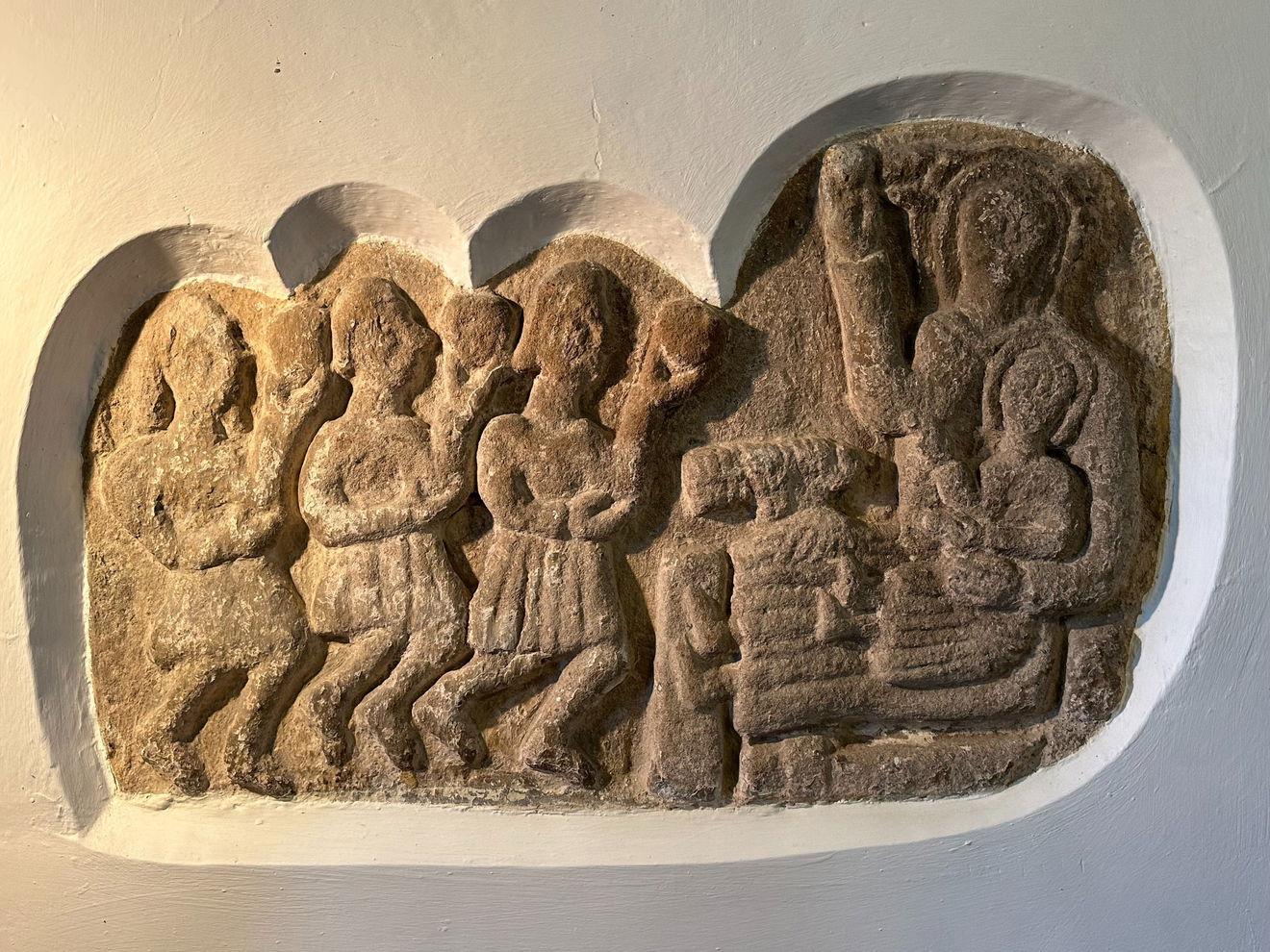
The bunker-like chancel was intriguing, with a low, vaulted ceiling, not unlike the Italian Chapel on Orkney if anyone's seen that.


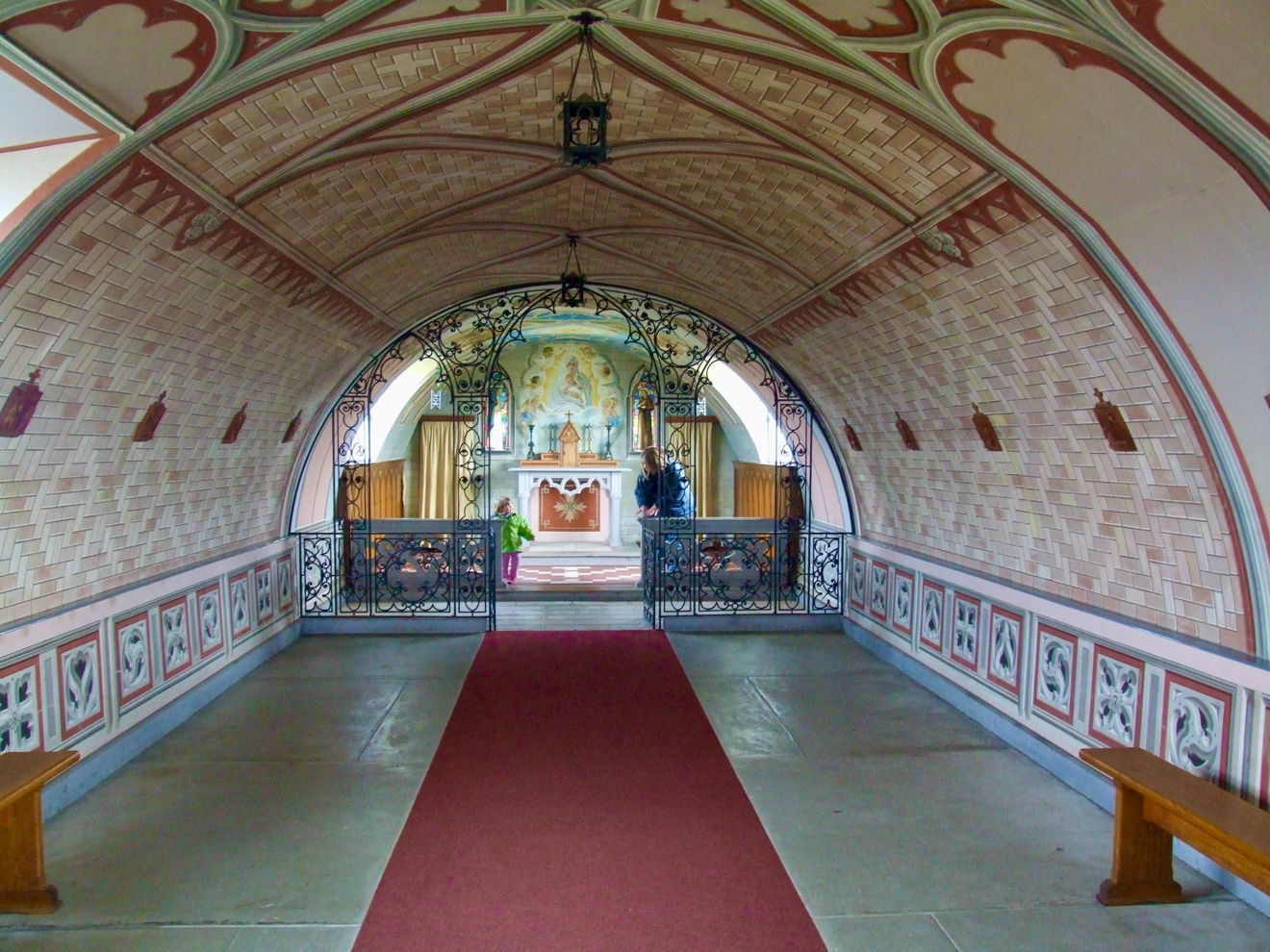
Inside were some brilliant antiquarian graves from the 1600 and 1700s with their irregular large font style dedications. Straight to the point. No flowery wording here!


On leaving the church, we were drawn to a wealth of information about philanthropist, suffragist, and social reformer Josephine Butler, an early feminist who fought for the rights of the poor, women's rights concerning sexual health, prostitution, education, the white slave trade and other worldy injustices. She was a good Northumbrian lassie who was way ahead of her time. Amongst other things, she campaigned to force parliament to raise the age of consent from 13 to 16.


It's funny how when you learn something new you often stumble upon something related within days which backs up your recent learning! We'd visited St Andrews in Corbridge the day before and there was a booklet about Josephine Butler who, although born in Millfield, near Wooler, moved to Corbridge with her mother and father. In 1835, her father, a strong advocate of social reform and a campaigner against the slave trade, built Dilston Hall. He was also a cousin of Earl Grey.
Josephine married in St Andrew's, then moved to Oxford then Cheltenham where she and her husband had a family. One tragic evening in 1864, her youngest child and only daughter Evangelina, ran to the top of the stairs to greet her mother and fell 40 feet over a bannister onto a stone floor and tragically died. Josephine never really recovered and spent the rest of her days shifting her focus to charity work and supporting women to live safer and more secure lives from, prostitution, disease, poor education, squalid living conditions and slavery. In 1903 after a prolific career as a political agitator and liberal feminist, she returned to the wildness and calm of Wooler to live near her eldest son and died at home in 1906.
One hundred years after Butler's death, artist Helen Whittaker designed this memorial window in her honour.


Butler is buried near the tower in the churchyard. It's a simple grave but commemorates a woman of great significance who changed the course of history and bettered the lives of many women.


Also in the graveyard is the family mausoleum, a Grade II listed building, now a little wibbly wobbly of The Davison's. Alexander Davison was prize agent and friend to Admiral Lord Nelson and a contractor who provided supplies to the Navy. He was born near Wooler and, became a successful shipowner providing supplies to the government, including army uniforms, weapons and transport, for over twenty years. The cash stacked up and he became Mr Wealthy of Wooler, entertaining significant figures like the Prince of Wales and William Pitt. He used his fortune to buy Swarland Hall and Park near Alnwick, in 1795 and carried out vast improvements. However, in the early 1800s, he was accused of pulling the Wool-er over the eyes of the government and in 1804 spent a year in the Marshalsea Prison. He was thrown in the slammer again in 1809 and was ordered to repay over £18,000 and sentenced to another 21 months in prison. The shame. Imagine the tittle-tattle down the College Valley?
With his reputation in ruins he was forced to sell his goods and chattels in the big smoke and wend his way back to Wooler (but is buried in this very posh grave, so obviously stashed a bit of cash up his knickerbocker leg!)
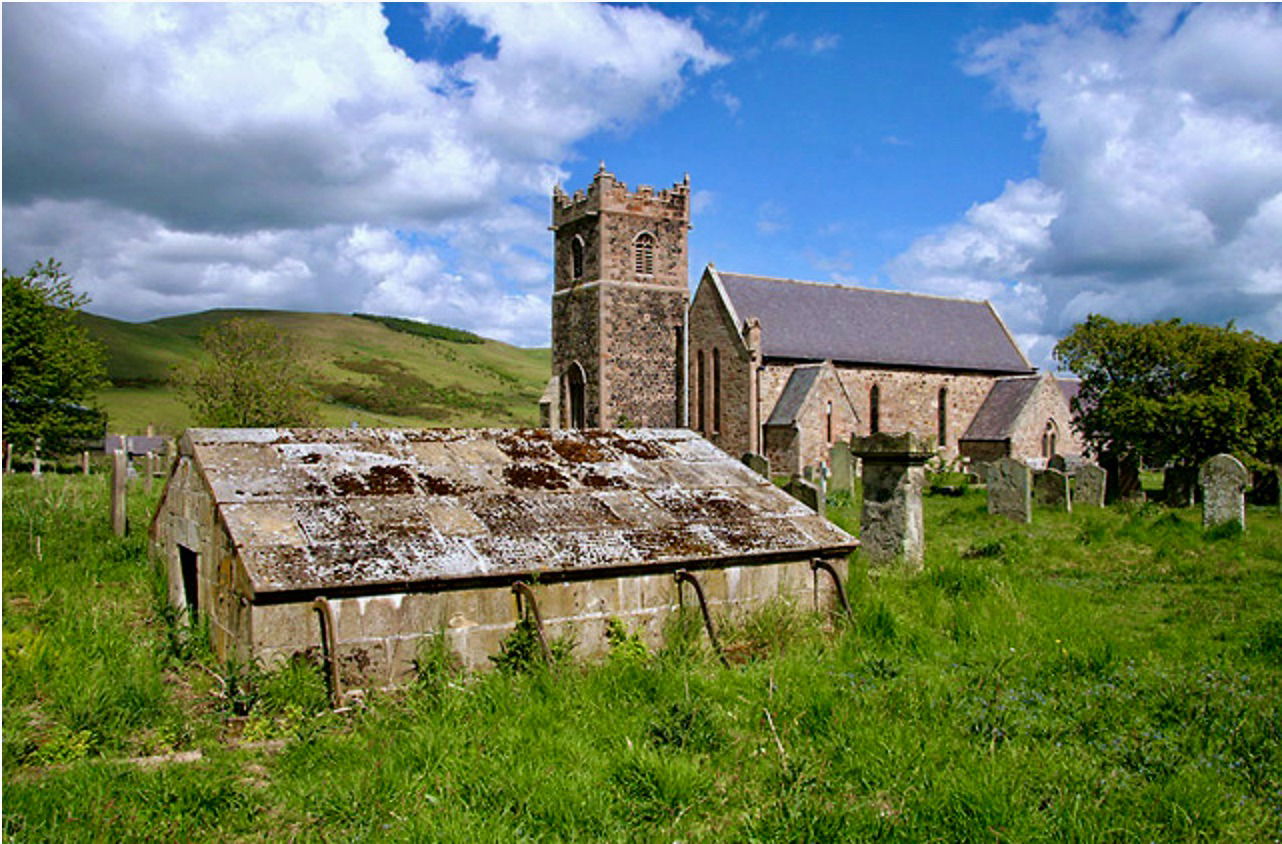
I couldn't help but think of the argy bargy rumblings in the ghosting hour between Josephine Butler's no nonsense sense of justice and Alexander Davison's wide-boy ways!
Opposite the churchyard high up on Lanton Hill stands an 8ft obelisk which Alexander had built to commemorate the life of his brother, both having been born in Lanton.
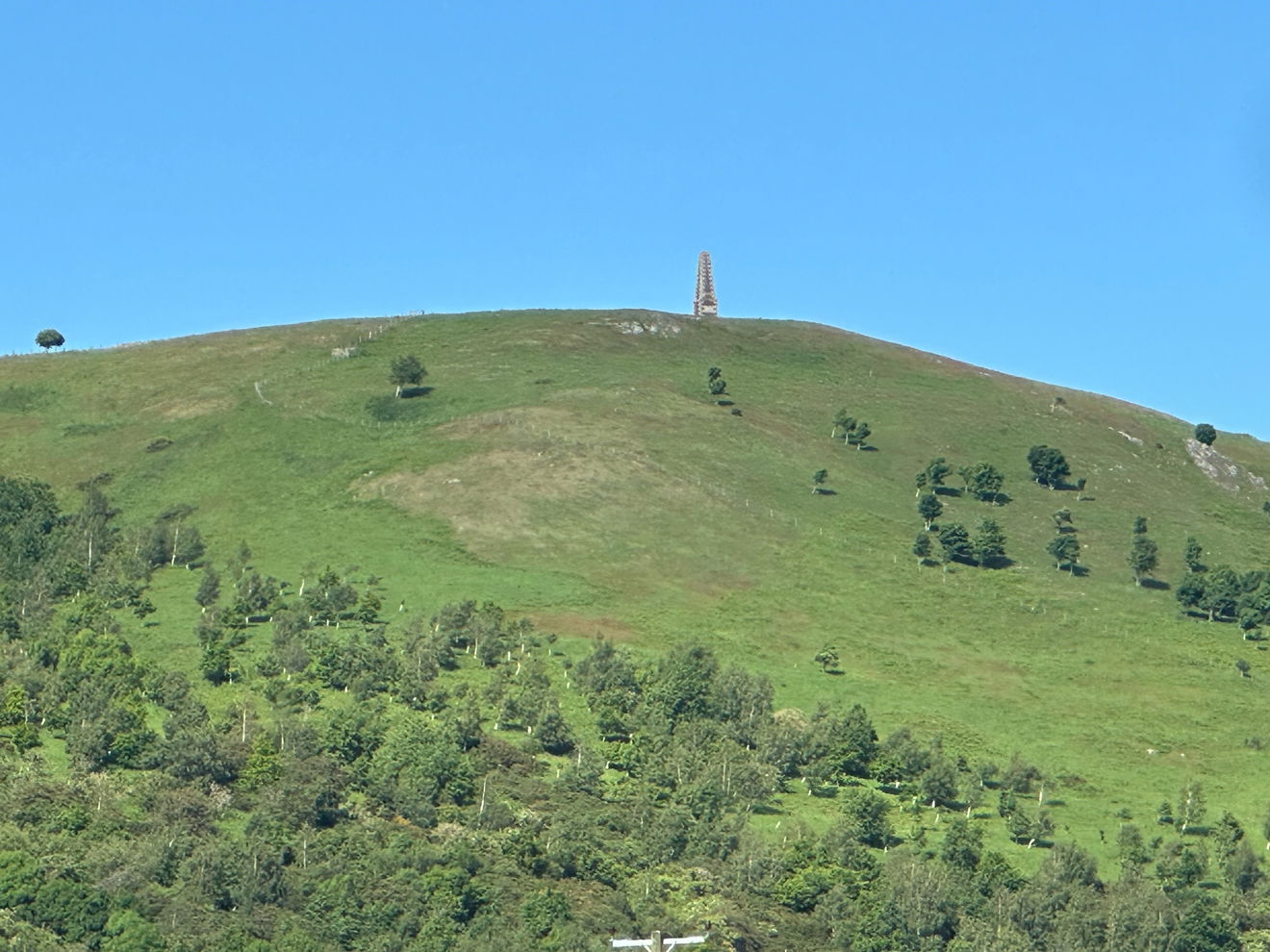
Some neat white commonwealth war graves stood to attention as we left and crossed back over the brook being dive-bombed by screeching swifts.
The Great is well earned in the name of this church, St Gregory The Great. It was a belter of a building. The sunshine helped, but then you can't really go wrong up in that neck of the woods. It's all beautiful, and we were headed up by a herd of wild Cheviot goats on the way home!


Josephine Butler is buried by the tower in the church yard at the church of St Greogory The Great in Kirknewton, Northumberland
Josephine Butler, was an early feminist who fought for the rights of the poor, women’s rights concerning sexual health, prostitution, education, the white slave trade and other worldy injustices. She was a good Northumbrian lassie who was way ahead of her time.
Get 2 points if you have visited this place. Already visited by 28 VIPs.
Login to the VIP area to add places to your bucket list, mark them as visited and more importantly see where you rank on the league table.
How To Find The Church of St Gregory The Great
Where Is The Church of St Gregory The Great ?
Lat / Long
55.565855, -2.138706
What three words
Where To Park For The Church of St Gregory The Great ?
Lat / Long
55.566098, -2.138182
What three words
Contributed by Jos Forester-Melville
Highland loving human. Thalassophile. I love a good smile. Happiest heading for the hills with my pickup filled with kids and dogs! Working four days, we enjoy a Fridate, and usually spend it scouting out new scenery. I love a gated track, a bit of off roading and if it involves a full ford, well, that gets extra points! I go nowhere without a flask and binoculars, and love the small things in life that make it big…Goldcrests, dry stone walls, Deadman’s fingers, blackberries and quality clouds.
More Places from Jos
More Places In Wooler
Find more fabulous places in Wooler, Northumberland and if you know of a place we haven't listed, then let us know.

Lanton Hill Memorial
Obelisk Wooler NorthumberlandA memorial obelisk on Lanton Hill erected by Alexander Davison in memory of his brother, John Davison.

Pin Well
Water Wooler NorthumberlandA wishing well in a water meadow near Wooler where bent pins were dropped for wishes.
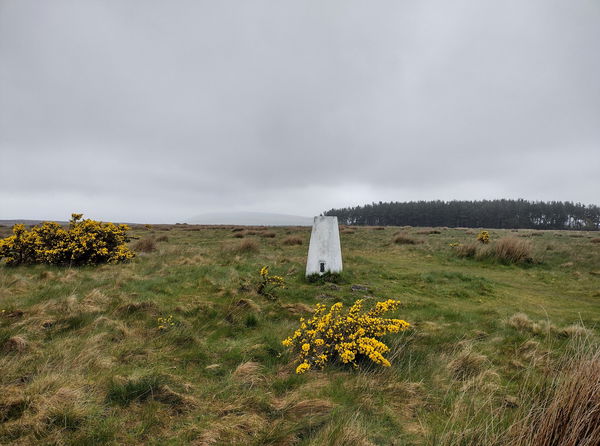
Whitsunbank Hill Trig Point
Trig Point Wooler NorthumberlandThis is the trig point for Whitsunbank Hill that sits on moorland (167m) near Wooler.
More Religious Places
So this religious place wasn't enough and you want more? Don't worry we have you covered.
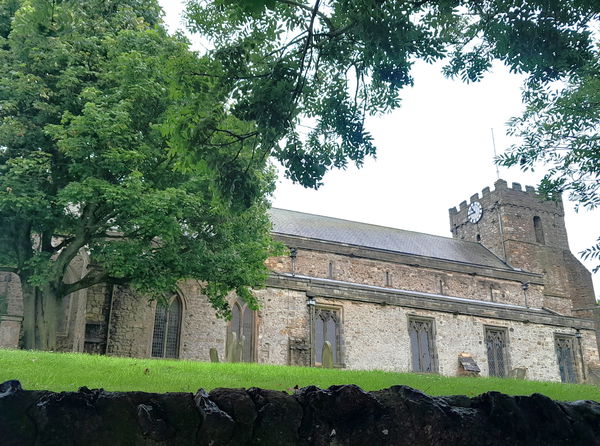
St Mary The Virgin Easington Village
Religious Place Peterlee County DurhamA noticeable Norman Church commanding a hill in Easington Village.

Memorial Chapel Falkland
Religious Place Fife ScotlandThe ruin of the a 1912 memorial chapel, containing graves of the Crichton-Stuart family.
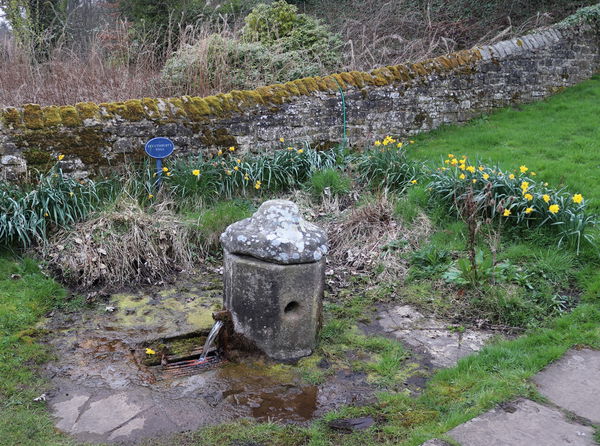
Cuddy's Well
Religious Place Bellingham NorthumberlandAn ancient well found by St Cuthbert in Bellingham, topped by a Georgian pant and known for its miracles.
Never Miss A Fabulous Place
If you are afraid of missing out on all the fabulous places we post, or just want to be the first to know, then sign up to the Fabulous North.
Each week we will email you all the brand new places that we visit.
Sign Up To AlertsFind Us On Facebook
We post all our new places daily on our Facebook Groups page, so join the group today and be notified when we add a new place.
Join Our Facebook GroupThe Church of St Gregory The Great was listed in Religious Place // Northumberland // Wooler

